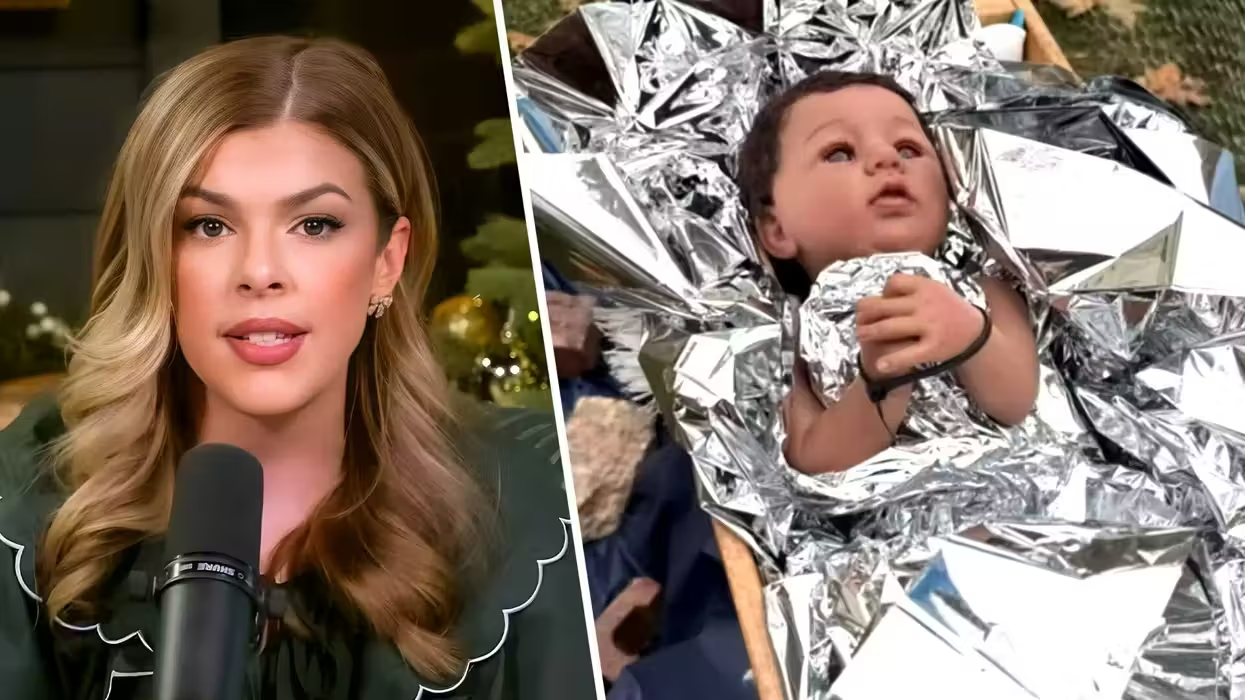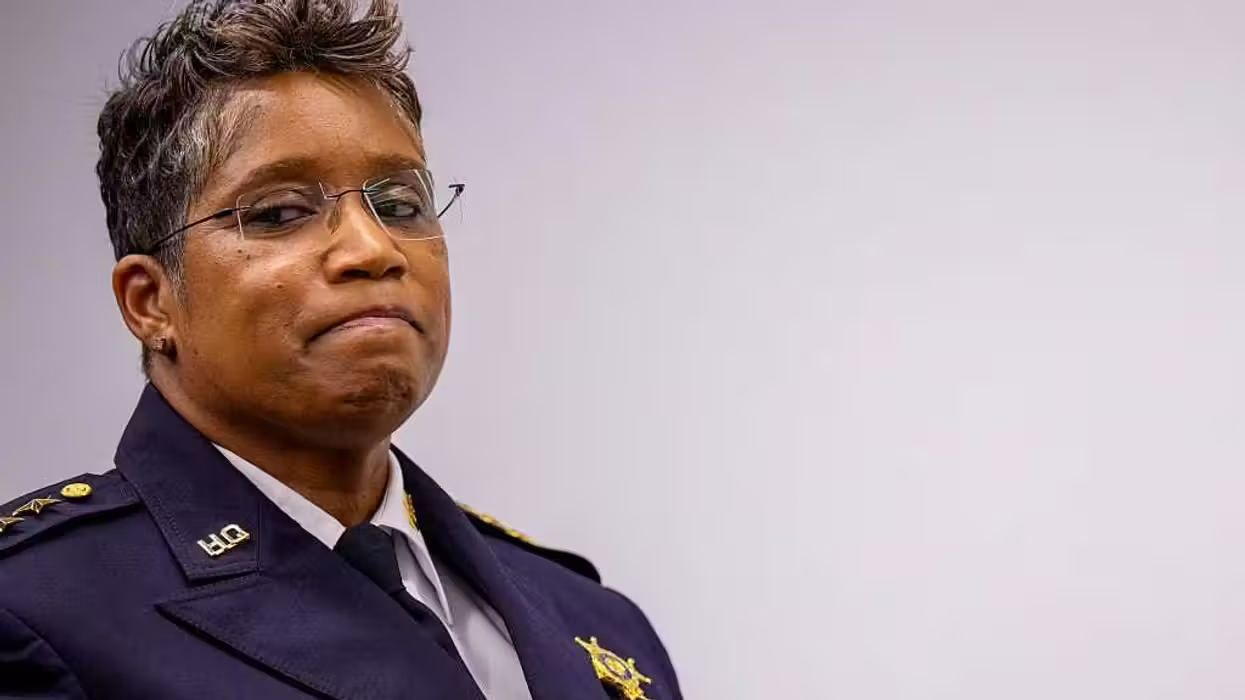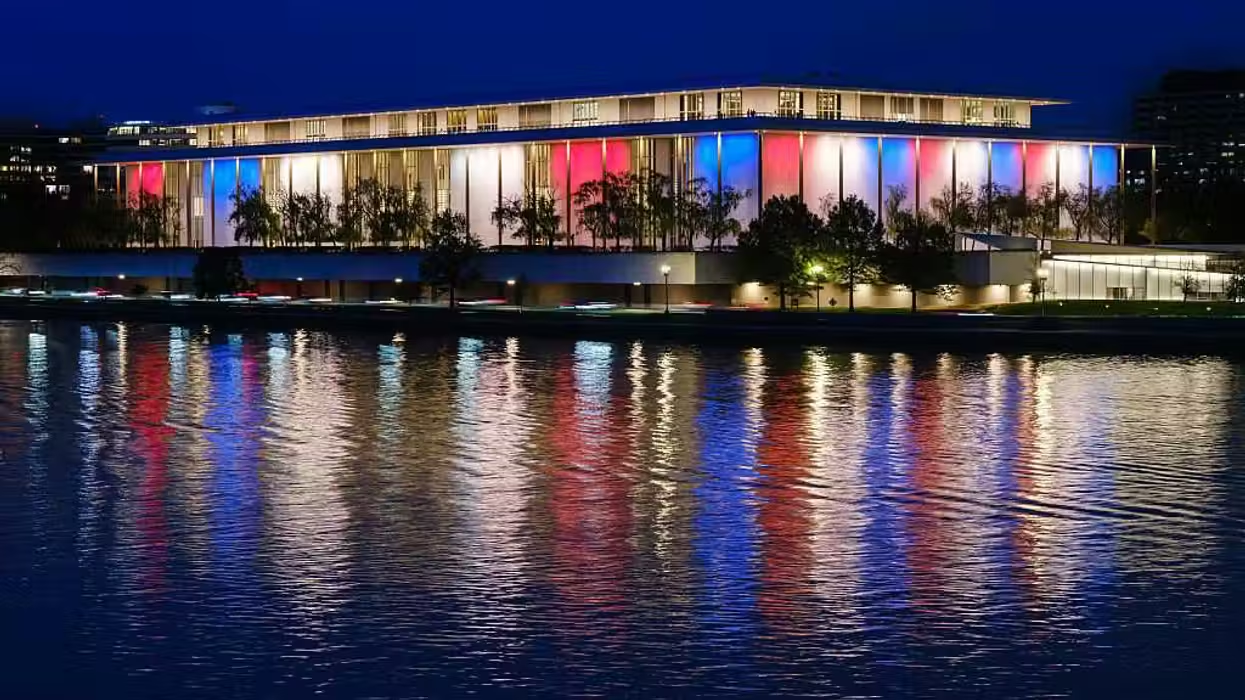
© 2025 Blaze Media LLC. All rights reserved.
U.S. Army Silences Catholic Chaplains From Speaking out Against Obama Admin Ruling
February 03, 2012
"it seemed to encourage civil disobedience and could be read as seditious against the Commander-in-Chief..."
Scroll down for an update to this story:
Last Sunday, Catholic priests across the country read an open letter to their parishioners. It condemned the Department of Health and Human Services’ decision to force religious employers to cover the cost of contraception and abortion-inducing drugs in its employees' health-care coverage. The letter argued that the faithful could not and must not in good conscience comply with the HHS’ “unjust law.”
However, Catholic chaplains in the U.S. Army were "forbidden" from reading this communication.
After Archbishop Timothy Broglio, who is in charge of Catholic military chaplains, sent out the note to be read at Sunday Mass, the Army's Office of the Chief of Chaplains sent out another communication "forbidding Catholic priests to read the letter, in part because it seemed to encourage civil disobedience, and could be read as seditious against the Commander-in-Chief,” Business Insider's Michael Dougherty reports.
U.S. Army officials felt that "the letter contained language that might be misunderstood in a military setting," according to Kathryn Jean Lopez of National Review Online, and they asked that it not be read from the pulpit.
"Instead, the letter would have been referenced in announcements and made available in the back of the chapel for the faithful, if they wished, as they departed after the Mass," Lopez writes.
Despite these instructions, some U.S. Army chaplains read it anyway. Business Insider reports:
More than one Catholic chaplain who spoke to us off the record confirmed that many chaplains disobeyed this instruction and read the letter anyway. Others sought further instructions from their Archbishop.
Some reasoned that because the letter was not "politically driven," and that it only sought to reaffirm Catholic teachings on sexual ethics and the "sanctity of life," they would risk punishment and disobey instructions, one source involved told The Blaze.
Anticipating repercussions for reading the letter, a confidential email was sent to the chaplains instructing them to contact the Military Archdiocesan lawyer in case of more interference or any punishment (via BI):
The Archdiocese believes that any attempt to keep a chaplain from freely teaching and preaching the Catholic faith, for which you were endorsed, is a violation of the First Amendment of the Constitution. If any of you are in any way punished or slated for punitive action, I ask that you kindly call our Archdiocesan Attorney, John L. Schlageter, Esq….he will immediately place you into contact with a Religious Freedom Law Firm that will be most willing to take your case free of charge.
Here is the Archdiocese for Military Services account of what happened regarding the letter, its public reading, and a newly-edited, government-approved version to be released (via National Review Online):
On Thursday, January 26, Archbishop Broglio emailed a pastoral letter to Catholic military chaplains with instructions that it be read from the pulpit at Sunday Masses the following weekend in all military chapels. The letter calls on Catholics to resist the policy initiative, recently affirmed by the United States Department of Health and Human Services, for federally mandated health insurance covering sterilization, abortifacients and contraception, because it represents a violation of the freedom of religion recognized by the U.S. Constitution.The Army’s Office of the Chief of Chaplains subsequently sent an email to senior chaplains advising them that the Archbishop’s letter was not coordinated with that office and asked that it not be read from the pulpit. The Chief’s office directed that the letter was to be mentioned in the Mass announcements and distributed in printed form in the back of the chapel.
Archbishop Broglio and the Archdiocese stand firm in the belief, based on legal precedent, that such a directive from the Army constituted a violation of his Constitutionally-protected right of free speech and the free exercise of religion, as well as those same rights of all military chaplains and their congregants.
Following a discussion between Archbishop Broglio and the Secretary of the Army, The Honorable John McHugh, it was agreed that it was a mistake to stop the reading of the Archbishop’s letter. Additionally, the line: “We cannot — we will not — comply with this unjust law” was removed by Archbishop Broglio at the suggestion of Secretary McHugh over the concern that it could potentially be misunderstood as a call to civil disobedience.
The AMS did not receive any objections to the reading of Archbishop Broglio’s statement from the other branches of service.
Update: The decision to forbid U.S. Army chaplains from reading the letter is an odd one. This is not the first time that the question of religious liberty and freedom of speech in the military has been brought up.
In fact, the Pentagon was once sued by The Becket Fund for having issued gag orders against a Catholic priest and Jewish rabbi for being vocal supporters of H.R. 1122 (the Partial-Birth Abortion Ban Act of 1997).
The Becket Fund argued in court that the gag order "violated their First Amendment rights under the Free Exercise Clause, the Free Speech Clause, and the Religious Freedom Restoration Act, 42 U.S.C. 2000bb, et. seq," according to Free Preach.
The court agreed with The Becket Fund that the gag order was unconstitutional:
What we have here is the government's attempt to override the Constitution and the laws of the land by a directive that clearly interferes with military chaplains' free exercise and free speech rights, as well as those of their congregants. 962 F. Supp. at 165.
Free Preach writes:
In particular, the court rejected all of the arguments advanced by the government to support their censorship of speech from the pulpit. For example, the government argued that it was not an important part of the plaintiffs' religion to urge their congregations to contact Congress about particular moral or political issues. The court soundly rejected that argument, holding that it was not the role of the government "to determine whether encouraging parishioners to contact Congress [about a particular issue like] the Partial Birth Abortion Ban Act is an 'important component' of the [plaintiffs'] faiths." Id. at 161.Moreover, the court held that "[e]ncouraging parishioners to contact Congress" about legislation addressing moral issues related to religious faith "appears to be no less important to the [plaintiffs' faith] than other religiously-motivated activity courts have held to be important enough to a religion such that its prohibition amounts to a substantial burden." Id.
The government then argued that the chaplains' contemplated speech was "not religious" but merely "political." The court rejected this argument also, holding that "it is not the role of this Court to draw fine distinctions between degrees of religious speech and to hold that religious speech is protected but religious speech with so-called political overtones is not." Id. at 164.
Finally, the court held that any interests advanced by the government for their censorship policy were "outweighed by the...chaplains' right to autonomy in determining the religious content of their sermons." Id. at 162.
It is imperative to note that these same interests would likely be asserted by the government in the private freedom-to-preach context as well, and similar reasoning to reject such would apply. To summarize the holding: The State cannot interfere with the right of religious leaders to preach from the pulpit on political issues, even if those ministers are in the military [emphasis added].
Now, all that being said, and the legal and constitutional precedent having been set, the question is this: on what grounds did the U.S. Army have the right to forbid those chaplains from reading an open letter from the Archbishop during Sunday Mass?
Update II: The Secretary of the Army has approved the reading of the letter:
Subject: Important LetterImportance: High
Dear Chaplain,
After speaking with the Secretary of the Army it has been agreed that this text should be read at all of the Masses next Sunday and made available to the faithful. If you already read it last Sunday, it is not necessary to repeat the reading.
Thank you and God bless you.
Fraternally in Christ,
Most Reverend Timothy P. Broglio
Archbishop for the Military Services
However, it's important to note that the language in "this text" has been amended from its original form. The line "We cannot -- we will not -- comply with this unjust law," has been removed entirely.
This is a breaking story. Updates will be added as they become available.
Want to leave a tip?
We answer to you. Help keep our content free of advertisers and big tech censorship by leaving a tip today.
Want to join the conversation?
Already a subscriber?
more stories
Sign up for the Blaze newsletter
By signing up, you agree to our Privacy Policy and Terms of Use, and agree to receive content that may sometimes include advertisements. You may opt out at any time.
Related Content
© 2025 Blaze Media LLC. All rights reserved.
Get the stories that matter most delivered directly to your inbox.
By signing up, you agree to our Privacy Policy and Terms of Use, and agree to receive content that may sometimes include advertisements. You may opt out at any time.






